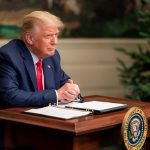In recent weeks, a significant controversy unfolded surrounding a much-anticipated interview with Kamala Harris on the renowned news segment 60 Minutes. The aftermath of the interview has brought forth a slew of questions, particularly about the editing choices made by the network. For some, these choices appear to raise more issues than they resolve, casting a shadow over the credibility of the program and news journalism as a whole.
The situation began when the interview was aired, leaving viewers bewildered at the notable differences in the responses provided by the Vice President. CBS aired two versions of her answers to the same question across different broadcasts, sparking accusations of selective editing. One version aired during a segment of Face the Nation, while another version appeared later on 60 Minutes, which was confusing. The discrepancy centered on Harris’s comments regarding the U.S. role in the Israeli-Palestinian conflict, where her responses varied between broadcasts.
Such skepticism isn’t unfounded, especially considering the political stakes as the nation approaches another significant election cycle. The notion that only parts of a substantial interview have made it to air can evoke feelings of mistrust—a sentiment that has festered in various realms of public life, including the media.
At its core, the controversy highlights a longstanding struggle between transparency and editorial control in journalism. Why would a news outlet like 60 Minutes, historically lauded for its investigative integrity, withhold or alter portions of an interview that viewers are eager to see? The question lingers in the minds of many concerned citizens. CBS has not provided a detailed explanation for the editorial choices, which has fueled speculation. Are they protecting their political interests? Or is there a deeper issue that threatens to disrupt narratives carefully crafted before the upcoming elections?
This scenario invites a comparison to other moments in political history when the press chose to prioritize narrative over transparency, ironically creating the dilemma they claim to combat. Throughout history, glossed-over truths have often led to major public outcry and disillusionment. When the reporting layers become so dense that the common person feels disconnected from the truth, it becomes crucial to question the motives behind such editorial decisions. Information is power, and withholding it can only lead to increased suspicion and a breakdown in trust.
In such times, the responsibility of individuals who care about the truth becomes paramount. Citizens should feel encouraged to reach out to their local media outlets, as suggested by commentators highlighting the local stations’ obligation to their communities. By raising questions and demanding answers, the public advocates for integrity in reporting, which can deter political bias. This interaction between the media and the community is essential in preserving the fabric of democracy.
Ultimately, the actions—both by the media and the public—will shape the discourse leading to the elections. As citizens embrace their role in upholding accountability, they can redefine what it means to engage with the news. By insisting on clear communications and transparency from all corners of public life, it becomes possible to foster a healthier environment for dialogue, free from the constraints imposed by selective storytelling. The hope, as ever, lies in the belief that a well-informed public can influence the course of their governance, thus affirming the notion that democracy thrives on the vote and the collective voices seeking clarity and truth.




